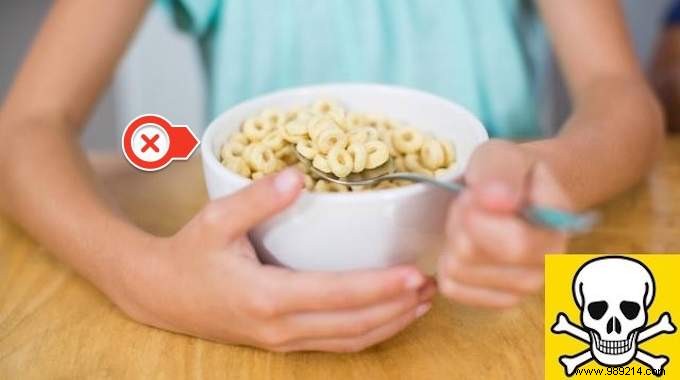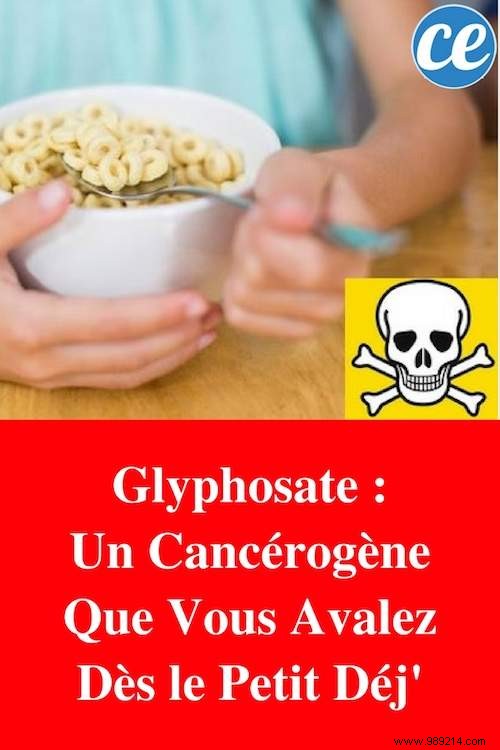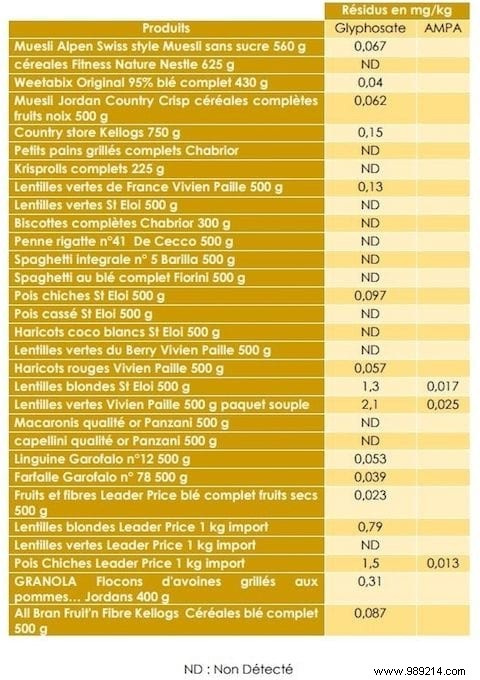
You've probably been told a thousand times before:cereals are is not the best at breakfast.
Why ? Because they contain too much salt, too much sugar and too much fat.
But there is another (bad) surprise!
Your cereal is also full of a particularly dangerous poison:glyphosate.
According to the NGO Générations Futures, this Monsanto herbicide, which is the most widespread in the world, is found every morning in the breakfast of the whole family.

However, in March 2015, the International Agency for Research on Cancer declared it carcinogenic for humans.
You say to yourself that the French government has surely reacted firmly since?
Well no ! However, this ultra-toxic product is found in 7 out of 8 cereal packets.
All major brands are concerned:Nestlé, Kellog's, Jordans, Alpen, Leader Price, Weetabix, etc.
Here are some other products that contain glyphosate:

And again, these are just the ones that have been tested by the NGO!
According to Générations Futures, more than 87% of breakfast foods tested are contaminated.
But, there are other reasons to worry because the rest of our diet is also concerned.
Thus, in his panel, 58% of the 12 pulses (peas, lentils, etc.) examined and 28% of pasta tested are also contaminated with this weedkiller, as you can see in the table above.
Remember that in addition to being carcinogenic, several scientific studies have shown that glyphosate is a source of serious malformations in newborns.
You then ask yourself:"but what are our political leaders doing?!"
Unfortunately, apart from grand declarations, not much...
Due to powerful lobbying by Monsanto, the European Union has just authorized glyphosate for another 5 years...
You will understand...
It's up to us to protect ourselves by paying attention to what we eat and what we feed our children, starting at breakfast!
Because, obviously, the politicians do not seem to be concerned about our health...
So how do you protect yourself from glyphosate on a daily basis?
For this, there are not 36 solutions:the safest thing is to choose as many organic foods as possible in your daily diet.
Obviously, eating organic is not given to everyone. Fortunately, here are some tips for eating organic without breaking the bank.